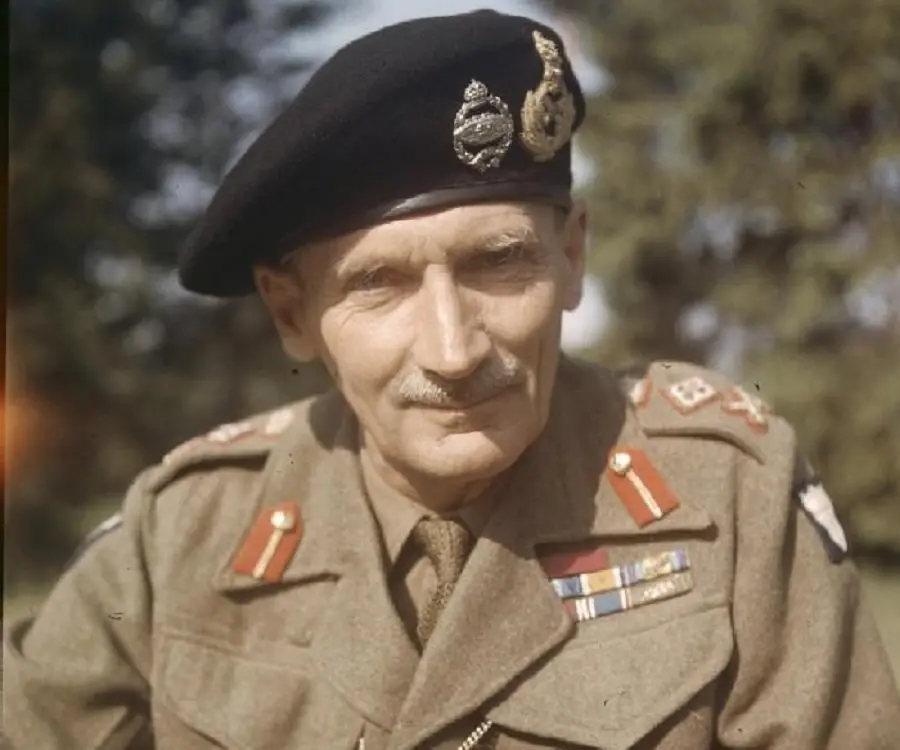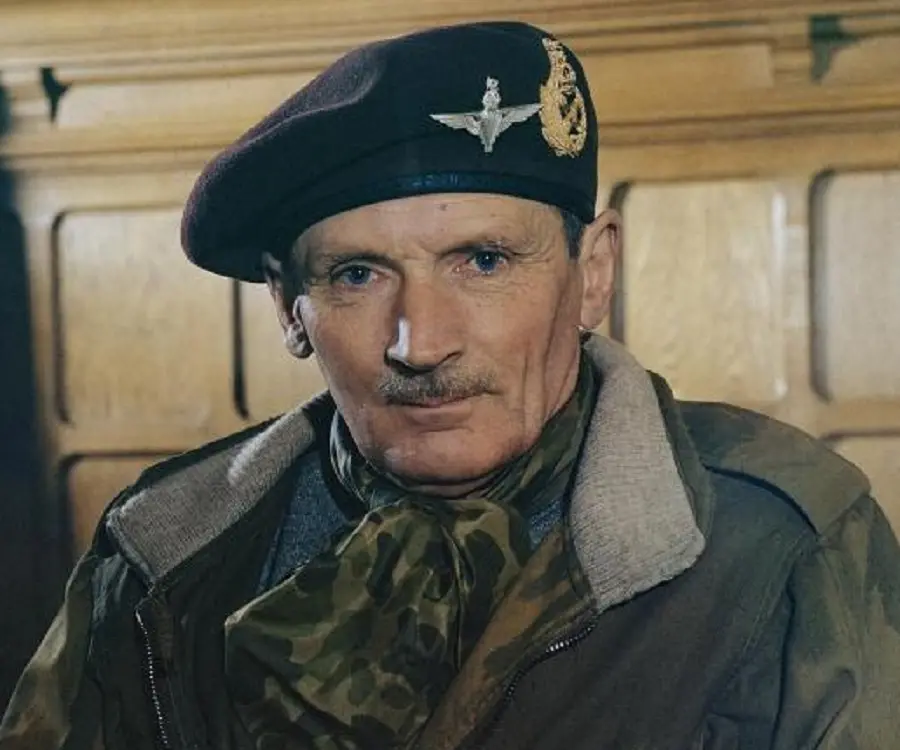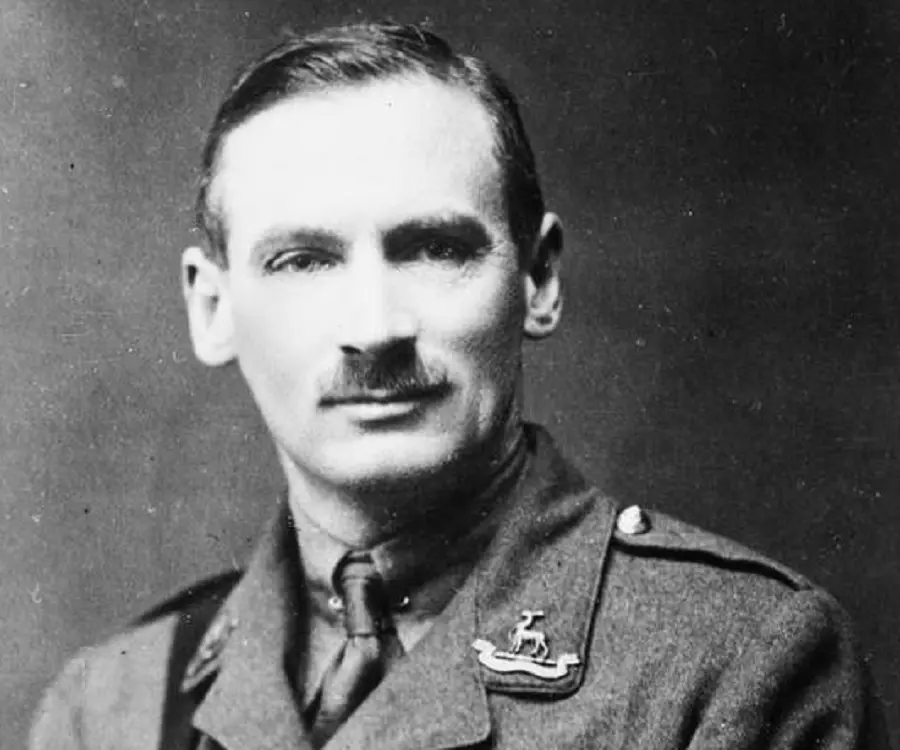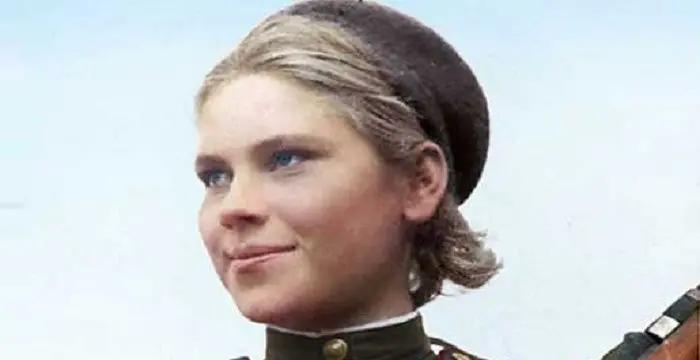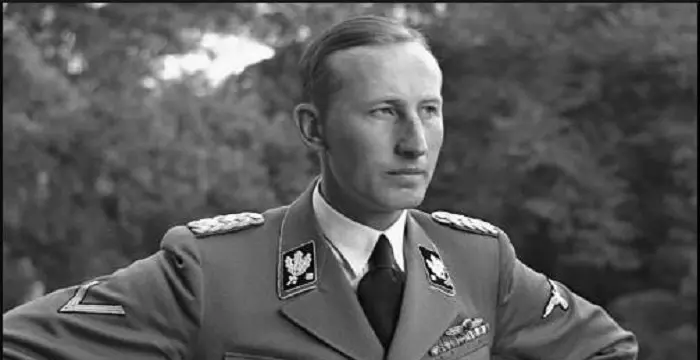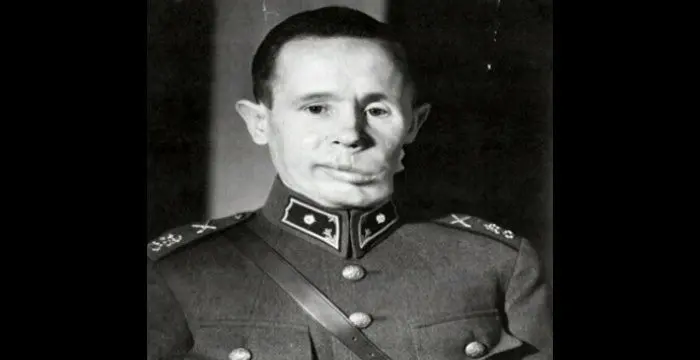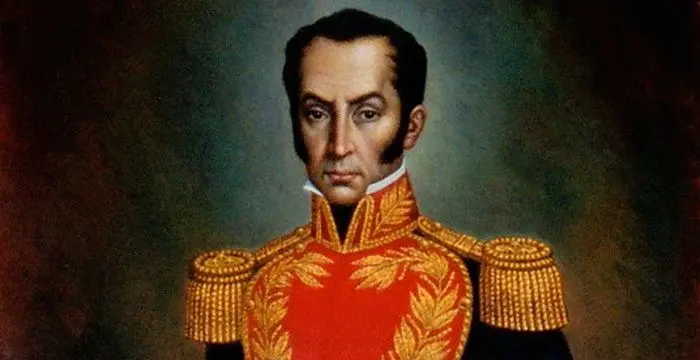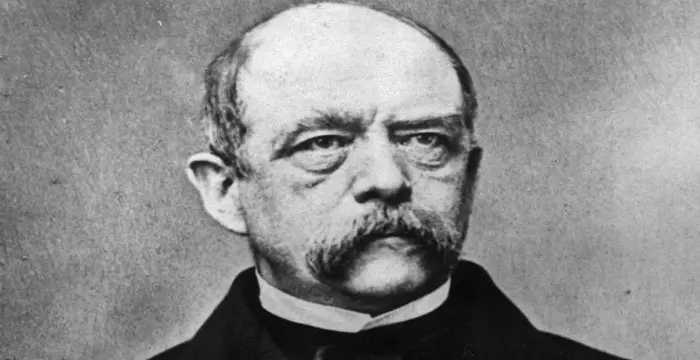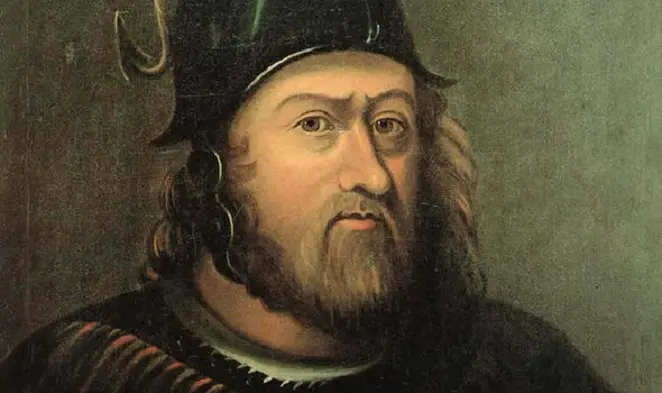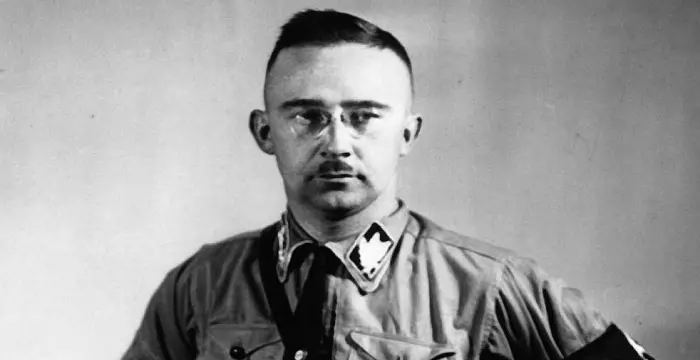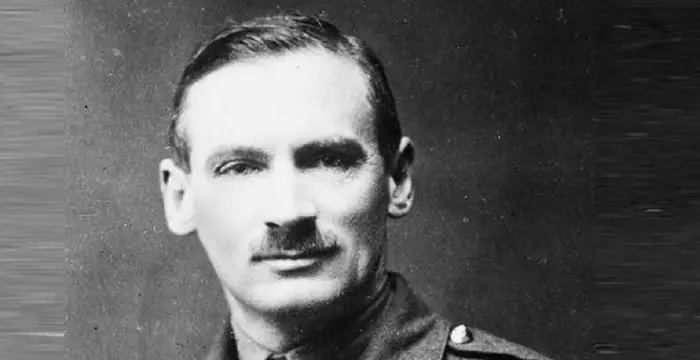
Bernard Montgomery, 1st Viscount Montgomery of Alamein - Allied Commander in World War Ii, Timeline and Childhood
Bernard Montgomery, 1st Viscount Montgomery of Alamein's Personal Details
Field Marshal Bernard Montgomery was a British Army officer who served as an Allied commander in World War II
| Information | Detail |
|---|---|
| Birthday | November 17, 1887 |
| Died on | March 24, 1976 |
| Nationality | British |
| Famous | Leaders, Military Leaders, Soldiers, ESTJ, Allied Commander in World War Ii |
| Spouses | Elizabeth Carver |
| Siblings | Donald Montgomery, Harold Montgomery, Sibyl Montgomery, Una Montgomery |
| Known as | The Viscount Montgomery of Alamein, Bernard Law Montgomery, 1st Viscount Montgomery of Alamein, Bernard Law Montgomery Montgomery of Alamein |
| Childrens | 2nd Viscount Montgomery of Alamein, David Montgomery |
| Universities |
|
| Birth Place | Kennington |
| Gender | Male |
| Father | Henry Montgomery |
| Mother | Maud (née Farrar) |
| Sun Sign | Scorpio |
| Born in | Kennington |
| Famous as | Allied Commander in World War II |
| Died at Age | 88 |
Bernard Montgomery, 1st Viscount Montgomery of Alamein's photo
Who is Bernard Montgomery, 1st Viscount Montgomery of Alamein?
Field Marshal Bernard Montgomery was a British Army officer who achieved international fame for his services as an Allied commander in World War II. A highly experienced army officer, he had served as a junior officer in the Royal Warwickshire Regiment during the World War I. He sustained injuries when he was shot by a sniper yet he returned to the war front as soon as he recovered in a display of courage and patriotism. Born as the son of a clergyman, Montgomery had a difficult childhood growing with up a physically abusive and indifferent mother. He became a bully as a result of his troubled childhood and was almost expelled from the Royal Military College, Sandhurst, because of his unruly and violent behavior. Over time, he evolved into a disciplined and courageous young man and was commissioned into the Royal Warwickshire Regiment as a second lieutenant. This marked the beginning of his long and illustrious career which saw him serve in both the World Wars. Recognized as a first-rate trainer of troops following his services in World War I, he had been given the command of the 8th Infantry Division in Palestine during World War II. In the post war period, he became deputy commander of the Supreme Headquarters of NATO, serving for seven years.
// Famous Soldiers
Roza Shanina
Roza Shanina was a Russian sniper who came to be known as “the unseen terror of East Prussia” during World War II. Find more about her childhood, family, personal life, etc.
Reinhard Heydrich
Reinhard Heydrich was a high-ranking German Nazi official during the World War II. Check out this biography to know about his childhood, family life, achievements and other facts about his life.
Simo Häyhä
Simo "Simuna" Häyhä was a Finnish sniper, considered the most deadly sniper in war history. Find more about his family, childhood, personal life, career, achievements, etc.
Childhood & Early Life
Bernard Law Montgomery was born on 17 November 1887, in Kennington, London, to an Anglo-Irish Church of Ireland minister, the Reverend Henry Montgomery, and his wife, Maud. He was the fourth of their nine children.
His father travelled a lot, leaving his wife to tend to the children. His mother used to beat the children frequently and was indifferent to their needs. Bernard became a bully as a result of the hardships he suffered.
He received his schooling from King's School, Canterbury, and St Paul's School, London. Then he enrolled at the Royal Military College, Sandhurst, from where he graduated in 1908.
Career
Upon his graduation, he was commissioned into the 1st Battalion the Royal Warwickshire Regiment as a second lieutenant. His first overseas service was in late 1908 in India. He was promoted to lieutenant in 1910 and was made adjutant of the 1st Battalion of his regiment at Shorncliffe Army Camp in 1912.
When World War I broke out, Montgomery was deployed to France with the British Expeditionary Force (BEF). He was severely wounded in October 1914 when he was shot through the right lung by a sniper. He rejoined duty soon after recovering and became General Staff Officer 1 by the time the war ended.
In the years following the World War I he attended the Staff College and was promoted to the rank of Major in July 1925. He went on to serve in India, Egypt and Palestine.
The World War II broke out in 1939 and during the early months of the war he led a division in France and commanded the southeastern section of England in anticipation of a German invasion after the evacuation of Allied troops from Dunkirk.
The British Prime Minister Winston Churchill appointed him commander of the British Eighth Army in North Africa in 1942. His assumption of command boosted the morale of the staff working under him. A meticulous planner, he was determined that the Army, Navy and Air Forces should fight their battles in a unified, focused manner. Under his direction, the Battle of El Alamein proved to be a great success and Montgomery was promoted to full General.
He played a major role in the invasion of Normandy in 1944 following which he was promoted to Field Marshal. In this position he led his army to major victories across northern France, Belgium, the Netherlands, and northern Germany. Finally on May 4, 1945, he accepted the surrender of the German northern armies on Lüneburg Heath.
After the war, Bernard Montgomery became the Commander in Chief of the British Army of the Rhine (BAOR). He served as the Chief of the Imperial General Staff from 1946 to 1948, but was not successful in this position as he lacked the political and diplomatic skills required for this job.
From 1948 to 1951, he served as the Chairman of the Western European Union's commanders-in-chief committee and was then made the deputy commander of the North Atlantic Treaty Organization under Dwight Eisenhower. He retired in 1958 at the age of 71.
Major Works
His services to the British Army during the World War II were of tremendous significance. Montgomery was the one who accepted the unconditional surrender of the German forces on May 4, 1945 at Lüneburg Heath, east of Hamburg. The surrender marked the beginning of the end of World War II in Europe.
Awards & Achievements
Bernard Montgomery received several prestigious awards over the course of his long and illustrious military career. One of the first awards he received was the Distinguished Service Order for gallant leadership in 1914.
He was created Viscount Montgomery of Alamein in 1946, in recognition of his crucial victory in the Second Battle of El Alamein.
He became an internationally famous war veteran after the World War II and was honored not only in his own homeland, but in nations across the globe. Some of the international honors he received was Knight of the Order of the Elephant (Denmark, 1945), Distinguished Service Medal (USA, 1947), Grand Cross of the Order of the White Lion (Czechoslovakia, 1947), and Médaille militaire (France, 1958).
Personal Life & Legacy
He met Elizabeth Carver, the widow of Oswald Carver who was killed in World War I, in 1927 and married her. The couple had one son, David. His beloved wife died of an infection in 1937 leaving him devastated.
He died on 24 March 1976 in Alton, Hampshire, England, United Kingdom, at the age of 88.
// Famous Leaders
Edi Rama
Edi Rama is the current Prime Minister of Albania. Check out this biography to know about his childhood, life, achievements, works & timeline.
Tecumseh
Tecumseh was a Native American leader of the Shawnee clan. This biography profiles his childhood, life and timeline.
Khalifa bin Zayed Al Nahyan
Sheikh Khalifa bin Zayed Al Nahyan is the current President of the United Arab Emirates (UAE). Check out this biography to know about his birthday, childhood, family life, achievements and fun facts about him.
Bernard Montgomery, 1st Viscount Montgomery of Alamein biography timelines
- // 17th Nov 1887Bernard Law Montgomery was born on 17 November 1887, in Kennington, London, to an Anglo-Irish Church of Ireland minister, the Reverend Henry Montgomery, and his wife, Maud. He was the fourth of their nine children.
- // 1908He received his schooling from King's School, Canterbury, and St Paul's School, London. Then he enrolled at the Royal Military College, Sandhurst, from where he graduated in 1908.
- // 1910 To 1912Upon his graduation, he was commissioned into the 1st Battalion the Royal Warwickshire Regiment as a second lieutenant. His first overseas service was in late 1908 in India. He was promoted to lieutenant in 1910 and was made adjutant of the 1st Battalion of his regiment at Shorncliffe Army Camp in 1912.
- // 1914Bernard Montgomery received several prestigious awards over the course of his long and illustrious military career. One of the first awards he received was the Distinguished Service Order for gallant leadership in 1914.
- // Oct 1914When World War I broke out, Montgomery was deployed to France with the British Expeditionary Force (BEF). He was severely wounded in October 1914 when he was shot through the right lung by a sniper. He rejoined duty soon after recovering and became General Staff Officer 1 by the time the war ended.
- // Jul 1925In the years following the World War I he attended the Staff College and was promoted to the rank of Major in July 1925. He went on to serve in India, Egypt and Palestine.
- // 1927 To 1937He met Elizabeth Carver, the widow of Oswald Carver who was killed in World War I, in 1927 and married her. The couple had one son, David. His beloved wife died of an infection in 1937 leaving him devastated.
- // 1939The World War II broke out in 1939 and during the early months of the war he led a division in France and commanded the southeastern section of England in anticipation of a German invasion after the evacuation of Allied troops from Dunkirk.
- // 1942The British Prime Minister Winston Churchill appointed him commander of the British Eighth Army in North Africa in 1942. His assumption of command boosted the morale of the staff working under him. A meticulous planner, he was determined that the Army, Navy and Air Forces should fight their battles in a unified, focused manner. Under his direction, the Battle of El Alamein proved to be a great success and Montgomery was promoted to full General.
- // 1944 To 4th May 1945He played a major role in the invasion of Normandy in 1944 following which he was promoted to Field Marshal. In this position he led his army to major victories across northern France, Belgium, the Netherlands, and northern Germany. Finally on May 4, 1945, he accepted the surrender of the German northern armies on Lüneburg Heath.
- // 1945 To 1947He became an internationally famous war veteran after the World War II and was honored not only in his own homeland, but in nations across the globe. Some of the international honors he received was Knight of the Order of the Elephant (Denmark, 1945), Distinguished Service Medal (USA, 1947), Grand Cross of the Order of the White Lion (Czechoslovakia, 1947), and Médaille militaire (France, 1958).
- // 4th May 1945His services to the British Army during the World War II were of tremendous significance. Montgomery was the one who accepted the unconditional surrender of the German forces on May 4, 1945 at Lüneburg Heath, east of Hamburg. The surrender marked the beginning of the end of World War II in Europe.
- // 1946 To 1948After the war, Bernard Montgomery became the Commander in Chief of the British Army of the Rhine (BAOR). He served as the Chief of the Imperial General Staff from 1946 to 1948, but was not successful in this position as he lacked the political and diplomatic skills required for this job.
- // 1946He was created Viscount Montgomery of Alamein in 1946, in recognition of his crucial victory in the Second Battle of El Alamein.
- // 1948 To 1958From 1948 to 1951, he served as the Chairman of the Western European Union's commanders-in-chief committee and was then made the deputy commander of the North Atlantic Treaty Organization under Dwight Eisenhower. He retired in 1958 at the age of 71.
- // 24th Mar 1976He died on 24 March 1976 in Alton, Hampshire, England, United Kingdom, at the age of 88.
// Famous Military Leaders
Sitting Bull
Sitting Bull was a Teton Dakota Indian chief who led Sioux tribes in their struggle for survival on the North American Great Plains.
Simon Bolivar
Simón Bolívar was a Venezuelan military leader who was instrumental in independence of several Latin American countries from the Spanish rule. This biography profiles his childhood, life, achievements and timeline.
Reinhard Heydrich
Reinhard Heydrich was a high-ranking German Nazi official during the World War II. Check out this biography to know about his childhood, family life, achievements and other facts about his life.
Otto von Bismarck
Otto von Bismarck served as the Chancellor of Germany and the Prime Minister of Prussia. He unified the German states into a powerful German empire. This biography profiles his childhood, political career, life, achievements and timeline.
William Wallace
William Wallace was a Scottish knight who was a central figure in the Wars of Scottish Independence. This biography of William Wallace provides detailed information about his childhood, life, achievements, works & timeline.
Heinrich Himmler
Heinrich Himmler was a German Nazi military commander and a close associate of Adolf Hitler. This biography profiles his childhood, family, personal life, role in concentration camps and his death.
Bernard Montgomery, 1st Viscount Montgomery of Alamein's FAQ
What is Bernard Montgomery, 1st Viscount Montgomery of Alamein birthday?
Bernard Montgomery, 1st Viscount Montgomery of Alamein was born at 1887-11-17
When was Bernard Montgomery, 1st Viscount Montgomery of Alamein died?
Bernard Montgomery, 1st Viscount Montgomery of Alamein was died at 1976-03-24
Where was Bernard Montgomery, 1st Viscount Montgomery of Alamein died?
Bernard Montgomery, 1st Viscount Montgomery of Alamein was died in Alton
Which age was Bernard Montgomery, 1st Viscount Montgomery of Alamein died?
Bernard Montgomery, 1st Viscount Montgomery of Alamein was died at age 88
Where is Bernard Montgomery, 1st Viscount Montgomery of Alamein's birth place?
Bernard Montgomery, 1st Viscount Montgomery of Alamein was born in Kennington
What is Bernard Montgomery, 1st Viscount Montgomery of Alamein nationalities?
Bernard Montgomery, 1st Viscount Montgomery of Alamein's nationalities is British
Who is Bernard Montgomery, 1st Viscount Montgomery of Alamein spouses?
Bernard Montgomery, 1st Viscount Montgomery of Alamein's spouses is Elizabeth Carver
Who is Bernard Montgomery, 1st Viscount Montgomery of Alamein siblings?
Bernard Montgomery, 1st Viscount Montgomery of Alamein's siblings is Donald Montgomery, Harold Montgomery, Sibyl Montgomery, Una Montgomery
Who is Bernard Montgomery, 1st Viscount Montgomery of Alamein childrens?
Bernard Montgomery, 1st Viscount Montgomery of Alamein's childrens is 2nd Viscount Montgomery of Alamein, David Montgomery
What was Bernard Montgomery, 1st Viscount Montgomery of Alamein universities?
Bernard Montgomery, 1st Viscount Montgomery of Alamein studied at 1908 - Royal Military Academy Sandhurst, St Paul's School, London
Who is Bernard Montgomery, 1st Viscount Montgomery of Alamein's father?
Bernard Montgomery, 1st Viscount Montgomery of Alamein's father is Henry Montgomery
Who is Bernard Montgomery, 1st Viscount Montgomery of Alamein's mother?
Bernard Montgomery, 1st Viscount Montgomery of Alamein's mother is Maud (née Farrar)
What is Bernard Montgomery, 1st Viscount Montgomery of Alamein's sun sign?
Bernard Montgomery, 1st Viscount Montgomery of Alamein is Scorpio
How famous is Bernard Montgomery, 1st Viscount Montgomery of Alamein?
Bernard Montgomery, 1st Viscount Montgomery of Alamein is famouse as Allied Commander in World War II
